(Updated on 08/12/16 to correct legend in first graphic — thanks to @aripwow)
Three years ago, I published my most-commented blog post, entitled “Indonesian kids don’t know how stupid they are”. It included data from the 2012 PISA tests, which compare how good 15 year-old schoolkids are at maths, science and reading across dozens of countries. Though Indonesians came near the bottom of the pile in all three areas of learning, they topped the charts for happiness at school.
Since then, the curriculum has been revamped in Indonesia, and the years of compulsory schooling increased. Now the results of the 2015 PISA tests are out. Indonesia’s average score has improved a little bit in maths and science, though students have moved backwards in reading. In science, the proportion scoring at level 1 or lower (in other words, 15 year-olds who can NOT even “use basic scientific knowledge to identify a valid conclusion from a simple data set” — example at the end of the post) has fallen by a princely 6% since 2006, but it still stands at over half of all students. In maths, two thirds of Indonesian 15-year-olds IN SCHOOL can still not “extract relevant information from a single source… and make literal interpretations of the results”, virtually unchanged since 2006. The proportion who can’t read and comprehend written Indonesian with any proficiency drifted up very slightly, from 53% in 2009 to 55% in 2015. Let me repeat that. In 2015, over half of Indonesian 15 year-olds surveyed were not able to “recognise the main idea in a text, understand relationships, or construe meaning within a limited part of the text when the information is not prominent.” And yes, ALL of the PISA tests are translated into Bahasa Indonesia. (If you want to know more about the data, the sampling, the exact types of questions asked, they are all comprehensively documented at http://www.oecd.org/pisa/. You can download the raw data and do your own analyses if you disbelieve me or the OECD analysts.)
My previous blog post was greeted with howls of protest from some who felt it just wasn’t fair to compare Indonesia with other, richer countries with very different economies. For their convenience, I’ve made some graphs that include only the participating countries that are also our neighbours in ASEAN. This one compares the proportion that can’t manage a Level 2 (of six) score in different domains. In other words, they don’t have enough reading ability, maths or science skills to function effectively in a modern economy.
Fewer than one Indonesian students in every four is effectively competent in all three areas. Some 85% of students in Singapore and over three quarters in Vietnam managed to score at least Level 2 across all areas, but we all know some of us are bad at maths, or lack the concentration to read carefully, so maybe 3/3 competence is too much to hope for. Still, the fact remains that more than two out of every five young Indonesians fails to meet minimum standards in all three domains simultaneously. (Girls clock up just 36% comprehensive incompetence, making them slightly more functional than boys, who manage three strikes in 46% of cases.)
This year’s report focuses on science, so let’s look at that in greater detail:
So: 56% of 15 year-olds in Indonesia score at Level 1 or below, thus performing two thirds worse than their neighbours in Malaysia. And to those who are itching to write and tell me about all the science Olympiads won by Indonesians, that’s admirable, but let’s also remember that they must be among the measly 2% that manage to answer questions at level 4, 5 and 6. Vietnam, whose per capita income is just over half of Indonesia’s according to the IMF, can muster 15 times that proportion of high performers.
How to explain this dismal performance, besides the absent teachers, underused resources etc.? Perhaps it is related to an excessive fondness for orthodoxy. Science progresses by questioning, by experimenting, by organising results and by analysing them critically. Sadly, there’s no Indonesian data available for the sub-indicators that measure these skills. When Indonesian students themselves were asked how they are taught science, quite high proportions of them say they are regularly encouraged to question, argue, experiment. (This contrasts with Thailand, the second-lowest achiever in science of the ASEAN countries that participated in PISA. There, far fewer students report being given opportunities for critical thinking or expression.)
But something in this equation doesn’t add up. Because despite all that supposed encouragement to think critically, Indonesian students were the least likely of all 72 nations/economies in the survey to think of science as a critical and iterative process. Just six in ten said that that ideas in science sometimes change, and an even fewer, 58%, said that ideas in science books and text books could change. It’s tempting to draw a parallel with the sort of mindset that sees blasphemy in the mere questioning of the interpretation of something written in a text that to some may be sacred. The photo above, taken in a school in West Kalimantan, illustrates the seriousness with which school texts are taken. While this girl’s teacher sat smoking in the staff room, she copied out her text book, diligently including all the incorrect answers for the multiple choice questions.
Some believe inter-country comparisons such as those provided by PISA are either meaningless or unhelpful. I don’t really see any value in comparing Indonesia with Finland or Peru. But comparing the competence of Indonesia’s soon-to-be-labourforce with that of its near neighbours makes more sense. Because since the inception of the ASEAN Economic Community last year, employers are at least in theory free to hire people from any ASEAN member. If you were staffing up a lab, would you rather pick from a pool where 56% of potential hires are scientifically illiterate (Indonesia), or from Vietnam, where the figure is 6%? That’s probably a Level 1 maths question, but it’s an important one for Indonesia to think about.
Sample Level 2 question, as promised. This comes after a whole introductory screed about fish farming, and another question about the design of fish farms.
Researchers have noticed that the water that is being returned to the ocean contains a large quantity of nutrients. Adding which of the following to the farm will reduce this problem?
-
More nutrients
More ragworms
More shellfish
More marsh grass
You can try other PISA questions if you like.

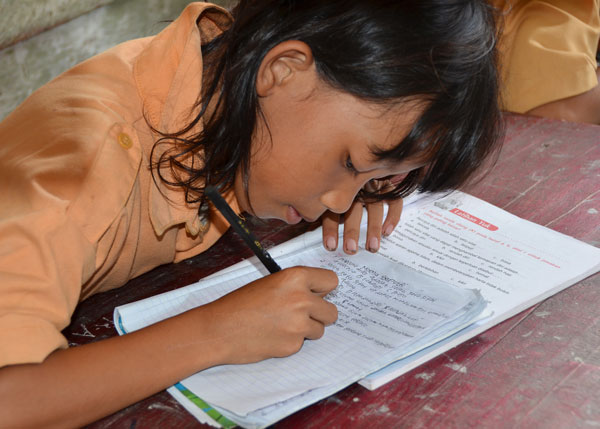
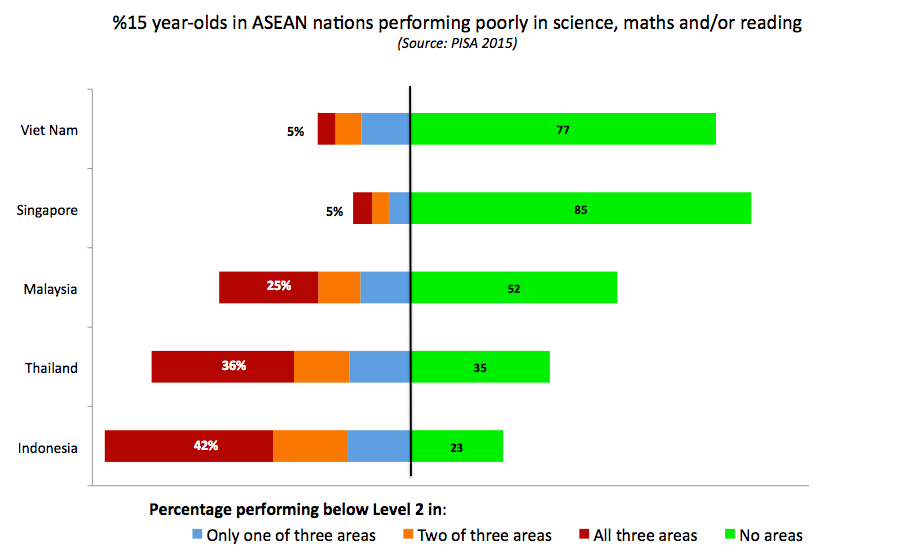
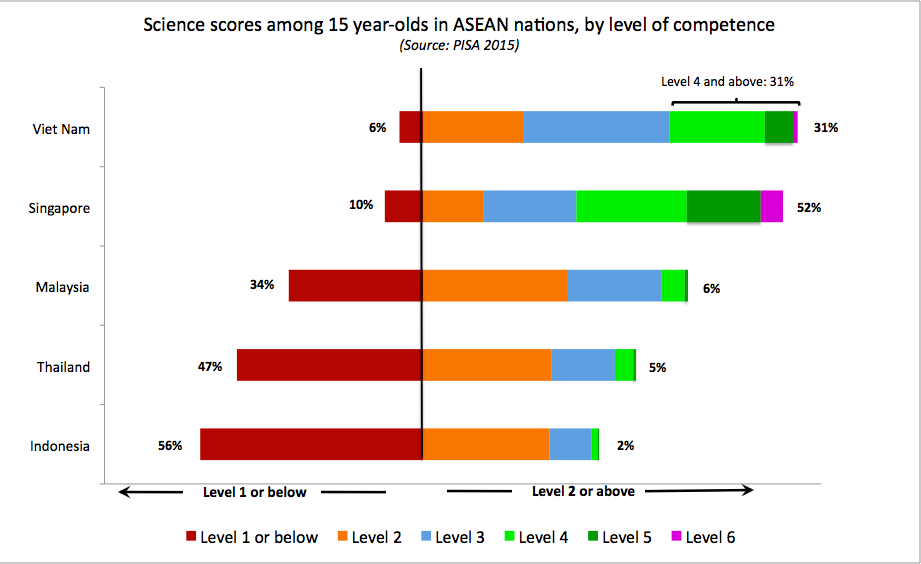
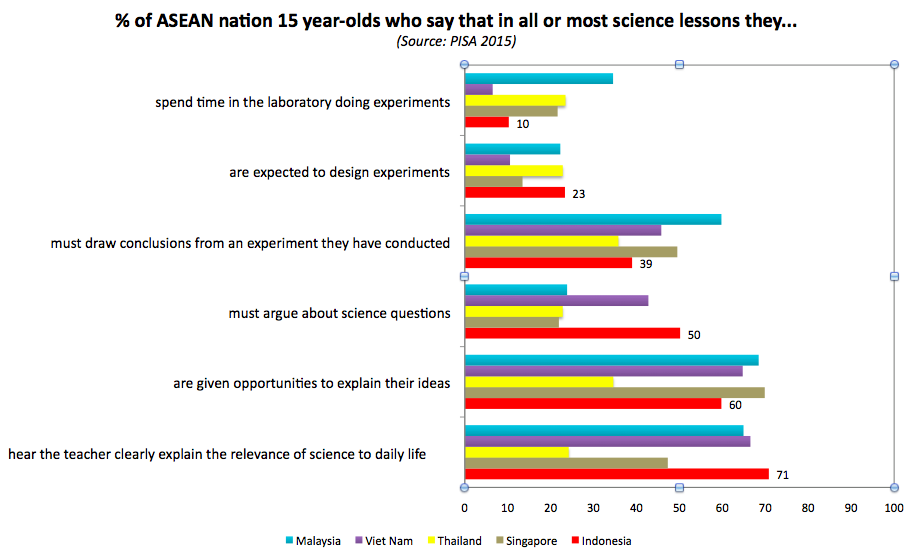
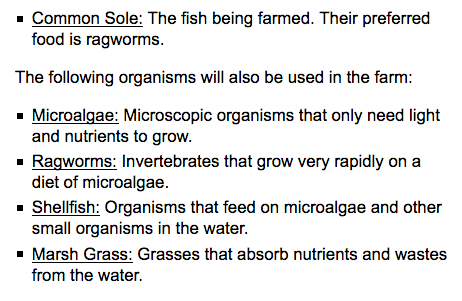




Isn’t that also a matter of big population tho
Indonesia has the 4th biggest population in the world
Bigger population means heavier management
In which this is where we shouldn’t compare our country to these smaller countries
All because our country is just that great, literally
Duh, you just proved the thesis right with this remark.. and I am pretty sure you will never understand why.
What are the indicators that you have used to conclude that Indonesia is currently “great”?
If it’s population size, I doubt it will worth much since we are approaching the next age where the number of low quality workforce would just turn into a huge burden.
Hence the comparison was using GDP per capita, not just total GDP. The average Vietnamese people are poorer than Indonesians, yet they performed a lot better than Indonesians. Size is an argument here.
Just because we are the 4th largest country in terms of population size, does not mean that we are a “great” country. We may have the number for labour workforce, but how many of these workers have the necessary education and/or experience? Quantity =/= quality.
guys seriously, he was being sarcastic.
…I left the word “literally”, right after “great”, and people still don’t get it, oh god the article is true..
The proportion of the population doesn’t correlate with a nation growth, China and the USA are more populated than Indonesia yet statically their literacy rate and their appreciation in Science and Technology is greater than Indonesia.
A large part of Indonesians still believe in superstitions, went on a mass rally where the reasoning behind it is extremely ambiguous, news sources that quote a random post on FB or IG without prior validation and 90% of the readers actually believe it, I could go on.
[personal attack on another commentator removed by moderator]
Gosh, it’s always something , because we where under the control of the Dutch as opposed to the English , it’s because we are so big, it’s because we have so many islands , it’s because bla bla bla … 100 years later , it’s because of the Dutch, it’s because of the islands, it’s because of population , 300 years later (loop back to the top).
First point of fixing any issue is to own up to that issue or acknowledge you have a problem and whatever the cause is , it needs to be fixed, not come up with excuses.
I am an indonesian and I employee Indonesians and not in a field where they are uneducated workers but in a field which in other parts of the world are considered as HIGHLY SKILLED employees and honestly, I hired many, and had to fire many because in this line of work you need strong STEM skills … I have no idea how they where educated but in other parts of the world people coming out if this profession have a certain skillset (logic, critical thinking , problem solving). Here they just don’t, the ones that survived are the ones that where willing to work hard and learn how to operate within this field and the ones that couldn’t just worked at other places probably causing more damage lol
I don’t understand the education system here but the guys that walk through my doors and manage to stay learn alot and know what they should .. the issue is , in this field , they should be walking through my doors with these skills not after they walk out …
Gpp. Yang penting masuk surga. *sarcasm*
Haha, biarin bodoh, yang penting agamis dan tidak kafir ya 🙂 /s
Pinter kaga, rusuh iya.
Buat apa agamis kalau tidak berguna bagi kemajuan bangsa.
Not surprising in regards to Indonesian lack of reading comprehension considering even the university students are so averse to it they regard anyone with reading as a hobby with awe. We’re just awful at reading while constantly can’t keep our mouth shut.
“Gpp bodoh yang penting gak korupsi”
Gpp bodoh yang penting bisa korupsi
I approve this, even as a university graduate I don’t understand that question. fml.
what problem are the scientist trying to solve? is it bad that a lot of nutrients is returned to the ocean?
in that case, my best guess would be marsh grass. because they probably will stay around the beach. not sure tho.
The farm dumping excess nutrients to the sea could probably disrupt the ecological balance.
That’s not the point of the question though. The question is designed to question your ability to infer the correct conclusion from the provided facts.
i understand that. this is warning to our country
Just admit it, we’re stupid.
The indicator is simple, we’re easy to get angry and provoked. So stupid
yang bilang “biarin bodoh, yang penting agamis dan tidak kafir” , cuy, agama mana yang nyuruh umatnya buat jadi orang tolol? gak ada
That’s a sarcasm.
No one said religion requires you to become a fool, that statement was directed to some people who don’t care whether they’re hurting people or making unrest as long as they’re going to heaven. Please learn to comprehend.
You just proved your point about easy to get angry and provoked. I hope you’ll learn and be more level-headed. 🙂
And by the way, about the quote, it’s called sarcasm. You’re welcome 🙂
Itu mungkin sarcasm aja
A sample of the 42%?
From all the ASEAN countries compared, it is only Indonesia that LANGUAGES are diverse, and daily conversation is conducted using non-Indonesian standard language. Perhaps we need to dig deeper into the background language the sampled students use. While I support the “prthodoxy-fondness” hypothesis, the inability to comprehend texts (in Indonesian or English) may relate to this language barrier, too.
A friend of mine, who happens to be an Indonesian teacher for German students, once told me that Indonesians cannot be expect to understand texts until they are told about the contents. The oral culture still dominates.
“…to function effectively in a modern economy” you beg ? I guess Indonesians still don’t want such kind of economy.
Yes, and no other ASEAN country has as many isolated islands as Indonesia. Unequal development has always been a major issue in the archipelago. But yeah, Indonesians should tone down the ultra-conservatism if they want any progress to be done at all.
And also the central government should stop pouring money into only Jakarta, and use that money to open more ports, and cities outside Java instead. This is one thing that always bugs me, doesn’t matter who the president is, apparently nobody sees the need to spread out the development outside Java. It can almost be said that the other regions are only vassals of a Javanese republic. I mean, look at China, in less than 20 years, they’ve changed a small fishing town into arguably the biggest electronic trading city in the world. And what have we even done in that span of years.
Open more cities, give incentives for people to migrate (farming land, cheap housing, etc) and then the capitalists and opportunists will continue to develop the cities by themselves. That way the wealthy people can contribute more to the development instead of just hogging all the wealth.
Well, that’s just my opinion though.
I think the current government already realize it, that’s why I support him. Look back to the past, almost 10 years we have no change at all. No construction finished in the past 10 years. But in this past 2 year, we can see the new project on electricity, port, railroad. Only in 2 years and progress reported ever year.
Not meant to blame, but that’s reality. In Indonesia, like any other democratic country, politic is still a problem. It arouses many problems that shouldn’t happen if everybody has nationality passion burn in them.
Ah, what a sad truth for my country. What can I give back for this country other than typing. I hope someday every smart people, didn’t just stop at thinking and analyzing. But action.
Isn’t that what the Government is currently doing? More ports and infrastructure is being built, measures like a standard fuel price nationwide etc…By doing this the economy can grow faster, you are absolutely right.
According to the 2010 census, only about 1% of people in the 15-19 age group cannot speak Bahasa Indonesia.
It is therefore somewhat questionable that language diversity would be a significant inhibiting factor.
“Science progresses by questioning, by experimenting, by organising results and by analysing them critically” i have admit it, that we don’t really know about learning proccess itself. We grew up as the people who less quiestioning, less experimenting then less thinking. They are fundamentals.
Agama yang umatnya tolol2 tanpa disuruh ada sih.
Saya mencoba cari soal2 PISA TEST dalam bahasa Indonesia, tetapi tidak ada dalam pilihan di antara 90 bahasa yg tersedia,hanya ada bahasa Malay . Bisa bantu saya utk menemukan nya ? Terima kasih.
Pengalaman saya memang begitu juga. Saya sudah meminta penjelasan dari tim PISA; nanti kalau mereka mejawab saya akan kasih kabar.
Saya sudah tanya tentang bahasa; Orand PISA mejawab begini:
“Indonesia was one of the countries to take the test on paper; this is why we don’t have the Qs in Indonesian online”
Jadi siswa mantap jiwa yg nilainya bagus ga jaminan jadi orang sukses saat dewasa. Hidup ga cuman urusan nilai pelajaran.
Tmn gw ada yang lbh sukses dr gw padahal jaman sekolah seadanya.
Ya, benar, tapi bukan berarti nilai itu tidak berarti. Nilai itu patokan dari kemampuan kita yang telah diuji sedemikian rupa agar dapat berguna di dalam masyarakat.
Ibaratkan barang dagangan, jika tidak ada yang menilai entah secara angka atau pun dari mulut ke mulut, bagaimana kita tahu bahwa barang dagangan itu bagus/jelek/tidak berguna?
I am quite sure Indonesians, including me, provoked by the ‘good-for-nothing’ yet I accept the fact though. It is something for students writing down or answering open-ended questions like ‘why’ and ‘how’ stuff in either Indonesian or foreign language. Anyhow, thank you for this article. This may inspire educators (teachers, older people, parents) finding ways.
Yes sadly must agree….. education system in Indonesia have real issues…
I’ve checked the PISA test site, there are no test in bahasa like the writer mentioned.
Yes, I wrote to PISA and asked why they did not have Indonesian questions among the 90 languages with example questions on line. Here’s what they replied: ” Indonesia was one of the countries to take the test on paper; this is why we don’t have the Qs in Indonesian online”
It is shocking. There are lots of excuses like a bad separation from colonial rule from both sides gave such a bad start. But what’s more important is that the changes of the last years did not change much. I find it impossible to argue with most Indonesians. They did not learn it. Well maybe it is the best country to get older like I do since my demention will go hardly noticed.
I no wonder, given the fact that all the refugees is going Indonesia. A very bad management by its immigration. They can all say Indonesia is a dumpster, because they shut their door for illegal immigration firmly.
This is very interresting reading,you are soo right,young Indonesians have an aversion of reading,personally I am “lost” without a book but I would say that 95% of my young Indonesian friends do not even look at the local newspaper,
and as you pointed out,most have a short “fuse” when it comes to religion,as we have witnessed in recent times,
I love this country,most of my friends I have send to school/college,even from as far away as Kupang and most of them enjoy good if not great employment
I wish all of you a Merry Christmas and a prosperous 2017
Do know, whether I should be sad or embarassed, but one thing is clear, I think, this explained, why Indonesian is easily provoked…
good for nothing and demand for everything. The ‘victim mentality’ in indonesia seriously our biggest problem on this F 21st century
Yea, like using PISA is not very problematic. You’re a more experienced individual in the matter of statistics, Ms. Pisani. I think you also have to put the problems in using some sets of variables in a statistic. You need to consider many ‘external’ issue that establishes the statistical methods. I do not say that Indonesia isn’t lack in education quality or whatsoever. It is true, our education hasn’t qualified anything except ‘up to no good’, according some ‘standards’ — that also should be scrutinized. But to push government based on set standards that might be not suitable for Indonesian children demography could be dangerous (no, I’m not talking about lousy excuse about the number population of Indonesians). We could go on implementing the way Singaporean treat their children, but would it do any justice for indigenous children in Indonesia? Street children? Would it solve the problems of coal mining whose activity has closed down several schools in Kalimantan and kill children? Education development shouldn’t only based on ‘English’, ‘Math’, ‘Science’, ‘Social Science’, “Accounting’ and so on,they are important, but we need context.
This article in The Conversation written by Amanda Wise might put my point of view more eloquently
https://theconversation.com/behind-singapores-pisa-rankings-success-and-why-other-countries-may-not-want-to-join-the-race-70057
Warm regards,
P
“Education development shouldn’t only based on ‘English’, ‘Math’, ‘Science’, ‘Social Science’, “Accounting’ and so on,they are important, but we need context.”
If you’re lacking in one field it’s ok. I suck at Maths. Many people aren’t very good at English. However, if you’re bad at three, something is, and will be, very wrong. Besides, the text mentions that many students can’t even make conclusions based on available data, or worse, “extract relevant information from a single source… and make literal interpretations of the results”.
Even though I too think that this test might just be arbitrary, it definitely shows that there’s something wrong. If almost half of all 15yo kids here can’t even draw relevant conclusions from a premise, how can they solve problems in the future? Let’s say, if you don’t know why you’re losing money, can’t do accounting to save your life, and lack the social skills to ask and find help, you’re basically screwed.
Hi,
I already read the article your share, and I think there are several flaws in it.
C’mon, the author should come to Singapore first.
No work-life balance as everybody get private tutor since elementary school
– A private tutor is a skillful person who already learned about psychology and how to teach kids. In Singapore, unlike any other developing country. They kiddos didn’t think the study is stressful instead that’s become their new game. They love to solve algebra since elementary school, love solving puzzles because that’s their game. The discussion in high school is like hey, what do you love for your business. Hey let’s become business partner. They are prepared for that. Kid is not meant to spend time doing nothing useful. Their game is something useful.
By private tutor, they learn about the world, in fun way. They are happy, they love their parents. They still eat together and had family quality time. This happen because Singaporean per capita income is almost ten 20 millions rupiah. While in Indonesia we still need to working, neglect our children, let them grow in school uncontrolled. They develop bad habbits.
It spends so much money.
Did you know? What else Singaporean has than its people? Singaporean didn’t become famous because of the oil, natural, or something like that. They become famous because of the people. Thats why they investing in it. Money doesn’t matter as long as they find great quality of people that can brings idea into realization.
Thats what happen.
I am Indonesian, and I hope, someday Indonesia will learn about shared resources, learn the big picture of the orthodox way, and realize our power. And bring happiness to our country.
Lets do something in Indonesia, stop comparing.
It probably has something to do with the centralized government and how the Muslim are the majority on this godforsaken country. Could you literally imagine that a Jakarta governor [possibly the best one in the city history] was named as a bloody blasphemy suspect? Not to mention this country isn’t a secular and how the discrimination are rampant too (~90% of them don’t even make it into the media). Makes you wonder why the 4th most populous country in the world can’t get out of that “developed” state.
Don’t know, whether I should be sad or embarrassed, but, I think, this explained clearly, why Indonesian is easily provoked.
Gaada guna debat doang ampe berbusa, do something
As an indonesian i’m not surprised
By that, i mean, not AT ALL
Like people still mistake 2+5*3=21 in my ENGINEERING major
I dont live in big city nor came from top school but at leasy my teachers taught me correctly
Am still waiting for someone to comment the likes of “so, do you have any idea to work this out? If you don’t, don’t talk.”
But really, as someone who’s getting decent education -as in going to “A” rated school-, I remember my high school friends and I having bad time to identify a problem from known facts. Thus, the 15 year old me must be sick reading those level 2 question. It is really sad..
You’ll find some ideas in Chapter 6 of Indonesia Etc. The first would be to stop using teaching positions as a form of patronage, a way for your suku (aka putra putri daerah) to “dapat PNS”.
I was thinking the
“So, do you have any idea to work this out?”
but the words
“If you don’t, don’t talk” is like try to make people angry. People with low EQ is easily provoked with the last words and may have logical fallacy when they attack you back. So better don’t say it when you have such high IQ and EQ.
I think in Indonesia for the education we should be concerned about EQ. we have BK(Bimbingan Konseling)/counseling guidance Teacher but it is friggin not useful at all. or PPKn(Pendidikan Kewarganegaraan)/civic education which is class time to joke around the teacher.
Become a teacher. Thats what i believe as the solution. You, yes you, and me. Of course
China which has population 5x Indonesia is apparently a strong performer. Sigh.
Who are you? In what language did you perform your test? Are you aligned with Indonesian formal system?
Did you mean the writer? There are some google to find out her info.
It’s not a test she conducted, the test/survey was held by PISA (a worldwide study by the OECD). The test taken in multilingual.
Now let’s take a look at the survey result and give our focus on the matter, “Youth Indonesians are lacking at math, science, and reading performance”.
Why we are always focus at the negative statement? “Negative mind will never give you a positive life” so make it positive. Make this our learn. Just do the good thing. Dont be provoke.
Great!! I hope hope hope the minister of education and everyone related to curriculum n education books prod in indonesia read this. I really think that the curriculum,the book, the teacher and the method, the media are really need serious improvement in indonesia. They really orthodox and you should see how they interpret curriculum to books, to media and to the teaching method. Its really sadden me that money and corruption have destroy the indonesian education. The books full of trash cos they choose the cheapest writer,stealed illustration n editor for the max money for the publisher n of course the bribing. For the method, the teaher so confuse with the thick book with so much crammed information (for max page to get more money) etc etc.. I can list soo much cause. Ive been studying the failed educatin in indonesia for so long
can you show us the profile and proportion of sampling design of the Indonesia kids ?
PISA publishes complete technical documentation on their website. However they usually don’t publish the country-by-country sample details until a few months after they get the results out, so you may have to check back in a few months
Thank you Elizabeth Pisani for reporting the PISA again. However, when I take a look at the data from official OECD website, I found this information: “*Argentina, Kazakhstan and Malaysia: Coverage is too small to ensure comparability (see Annex A4).” That’s why Malaysia is removed from official PISA report. I really think that you should exclude Malaysia from the statistics in your article because it is misleading.
I believe that because by statistic more than 50% of illegal retribution in Indonesia was happened in the minister of education.
In my opinion this poor result is because the whole attitude towards education is one where parents believe school is all-important for learning, and so there is little if any emphasis on explicit non-school-based learning where some of these problem-solving skills could be picked up.
I traveled to small towns in china and the modest people who are cab drivers and farmers told me that their kids’ teachers are quite demanding of them and their students. Education is prized as a way out of poverty and make parents proud. Especially among the Han Chinese. So if PISA in China starts to include provincial data, China will still on average do much better than Indonesia. Especially with the recent uptick in religiosity, Indonesia is only going to get worse. I know you love Indonesia Dr Pisani, but unfortunately this is not going change. The corrup culture and dominant religion at large are hostile to knowledge acquisition
and critical thinking. Indonesia should not aspire much higher than subsistence farming. It doesn’t need no stinking PISA test. The people are happy nevertheless.
I thoroughly agree that critical thinking is sorely lacking in Indonesia, but there are a few issues I would like to raise here with regard to both the ideology behind the test and your comments.
These tests encourage the commoditization of humans.
I find your phrase ‘function effectively in a modern economy’ a depressing, corporate view of human life and what is to be considered important in an age where we are beginning to see the start of post-capitalist societies. It’s also patronising, given that the glass ceiling for the vast majority of Indonesians is so incredibly low that it barely makes any difference for them salary-wise whether or not they possess what we would call critical thinking skills. These tests are built around the question of ‘what economic value (i.e potential profit) can these citizens provide for rich global factory owners?’ Why should we be interested in that worldview anyway?
In a world of increasing automation and increasing population, what sort of jobs can even the most intellectually gifted Indonesian expect, without the usual ‘friends in high places’ or rich parents? Critical thinking is a brilliant tool for understanding the world from a personal perspective, but I am not convinced it leads to more lucrative or more stable careers unless you already have a huge headstart. A lot of the time ‘good’ staff are those that simply get on with what they have been told by their manager to do rather than question anything (in most workplaces you’d be seen as a bad employee both in the West and in Indonesia for contravening the hierarchy).
As we see in the West right now, the jobs with probable longevity are those that are so basic that it is not cost effective to automate them when human labour is cheaper. A freelance ojek career might be a better bet than paying for an education and putting in years of hard work studying with the ambition of working for 2 million rupiah a month doing work in a lab that a robot might well be doing ten years down the line (a robot that presumably won’t have student debt to pay back).
What about creative thinking? Do any of these tests measure those?
I imagine these tests do not measure creative thinking / the ability to make great works of art. Are we to only value great works of batik, gamelan, Javanese landscape paintings, and so on, as far as they can gain traction in a ‘modern economy’? If so, I think we have it the wrong way round, being led by money and judging ourselves economically based on our salary and our works on whether or not they earn us anything. It’s a nonsense. Some folk start with huge advantages and some people have better corporate PR networks in place than others. For most ordinary folk, doing well in a test or not will not genuinely make them happier or make it much easier for them to contribute great things to their society. Indeed, if a low ‘human commodity’ test score keeps rotten corporations out of their neighbourhood for a few years longer then they may be doing their neighbourhood a great favour. I imagine they would score realtively highly in a happiness test.
Thank you for your thoughtful comment (which is a great example of critical thinking). As you quite correctly imply, too much critical thinking can make one pretty unhappy in today’s world. And yet, and yet… I’m not sure that “acritical but happy” is any less patronising than the “must get on in the world as I think it should be”. The difference between critical thinking and creative thinking is in itself critical; some of the PISA tests measure the first; none, I think, measure the second. Creative thinking a measure on which I think many Indonesians would score quite highly.
I know many people who have made something of themselves in Indonesia using their critical thinking and problem solving skills (without a head start). Most of them are surprised are others do not seem able to compete when it comes to perseverance and work ethic. In these areas there is not much competition. New entrepreneurs are trying to conduct fully corruption free business but this is often impossible. They system rewards people who come into positions of taxation and does not reward or encourage innovation.
What about enjoying a more complex and full understanding of the world? Is that not an end in itself and a lifelong gift? I would always rather to be knowledgeable and less satisfied than to be a happy fool.
If you dont believe this article then read all the articles that show overseas Companies in Indonesia see huge chronic skills shortages in multiple areas. Maybe they just want to make fun and arent concerned with missing business opportunities. Indonesia will get stuck in the “middle income trap” without major improvements to education.
Look to the confucian cultures of Singapore, China, Taiwan, South Korea, and Japan who place education as priority number one to see how Indonesia stacks up… not even close.
Excuses don’t matter – all regions of the world compete with each other. Indonesia has higher wages and lower skills than a lot of emerging economies in Asia. Not a good mix. Very simple. Although the Country will attract multinational factories by over-taxing or blocking their imports. This strategy will not attract real growth.
“Take the risk of thinking for yourself, much more happiness, truth, beauty, and wisdom will come to you that way” Christopher Hitchens
Absolutely, Apakebab. To quote Hitchens you pretty much demonstrate you are in the top 1% of Indonesians intellectually – so if you came from a typical kampung background you are to be immensely congratulated. It’s a real shame religion is so central to the very notion of Indonesia – how can things end well for a nation built on the belief in something that most probably does not even exist? The tensions between religious belief and critical thinking are perhaps impossible to reconcile. Best of luck.
It is true then what?
Doing Nothing?
Cmon guys, if you’re that smart, teach them.
is it hard for you to give time to teach them? or at least making scholarship or something like that?
That’s what happen, they are still kid they don’t know anything.
It happens because you, me, and everyone else here only know to blame
and forget that “we” can do something.
Start from now, can help Indonesia mengajar, or live in countryside at least 3 month. Make some contribution.
I don’t know about this but these comments were mostly posted by Indonesians and they’re using English. Much less to say the sentences are mostly grammatically correct. Nonetheless, I can’t identify what age group they are in. What I was trying to say is maybe there are chances of how each generation is being taught with a different system and the worst case is probably the fact that change might have gone worse.
I agree with @Imjuanleonard. Let’s stop blaming and comparing, make ourselves useful instead. Do even the smallest things you can to help this nation improve rather than spending our time to point to the flaws of our system.
We should probably be thankful for the insults thrown for our nation and make it a reminder and see it as something to reflect on while thinking of effective possible actions.
Parents and teachers’ role is critical. They should continually learn to improve their quality and transfer the quality parenting and teaching to Indonesian kids.
We probably aren’t as rich as Singapore or those top countries and don’t have as adequate material resources to support us in our learning. But one thing is possible, even easy, and not costly: READING. We need to make reading a habit, a need, a culture. We need to teach Indonesian kids to read, and equally importantly, to pick only readings from trusted sources, to be critical and reflective when they read.
Many items in PISA test are authentic topics and materials. This is what we need to bring into our everyday teaching. Teaching definitions and theories are necessary but what’s more important is to connect these with what happens in the real world. This how kids deeply understand concepts they’re taught and not by merely memorising definitions and facts.
Comparing and blaming surely brings enjoyment to a certain people. Despite of how Indonesian people here approved how “good for nothing” Indonesian, we should gradually seek for solutions instead.
But to what extend we should settle the issue? I believe take some action rather than complaining would be a good start. Those who believe that they possess the capability to share knowledge should consider to share their knowledge, or at least share the will on seeking knowledge. For example, involved in volunteering in teaching. Not only it benefit others but it also benefit yourself by obtaining more knowledge. Everything need process, not in an instant. Hence, instead of being passive-aggressive, I believe that taking some actions are the best thing to do. Cheers!
I love this blog! What Indonesian authorities need is a wake-up call, and a provocative statement like this is the best way! Agreed, it is not culturally sensitive, because the Indonesian way would be not to rock the boat, not to shame anyone and to find excuses left and right so that nobody loses the face. Action at grassroot level like volunteering only benefits very few, we need changes at the top!
During the year i lived there, I was dumbstruck at how thoroughly incompetent most non-Chinese Indonesians were. only the Chinese schools offered any hope of a future (often by studying abroad), the locals mostly just seem to end up as broom pushers for foreign or ethnic Chinese owned businesses unless they’re one of the .00001% with government connections – then they can receive a high salary to do nothing, which seems to be most Indonesians’ dream. I think the govt makes it so hard to hire foreign workers because they know no one would hire a local given the choice. If it were easy to hire foreigners, most large companies would use them almost exclusively. I could even see them bringing in Filipinos etc for the lower paid jobs.
I would like to think there’s a way forward, but the extreme laziness that goes along eith the poor performance there would make any plan of improvement very difficult. At least until the local teachers actually start showing upto work and doing their jobs.
As a native currently doing studies abroad, I dont think laziness is the problem.
It is our culture of conforming with you social circles – that is the real problem.
Imagine being surrounded by families who have thousand times since you are middle/high school pummeled into your head the idea of “jadi PNS” (being a civil servant) in order to have a clear career progression and no need to think about anything anymore (except marrying someone soon and have families of course) rather than being challenged into competition. Some of my family does that but having went to a “A-list” school made me everyday also been drilled to think “hey, the competition out there is tough, so you better push hard and not be satisfied with what you got.”
Sadly there is not enough schools or families drilling the idea of competition, nor do enough of them give space for the kid to at least “deviate” a bit from the social conformity of what is a “good career path”.
1 of my opinion about this lazyness in working among Indonesians is because of the salary, maybe some of them think that their full efforts for their profession isn’t worth it for the salary they recieved. The problem is the salary I think since I didn’t heard or see Indonesians working as labour or at construction sites in Malaysia seem lazy and that’s what my Malay teachers told the class, Indonesians are more hardworking than Malaysians at construction sites or labour jobs based on what they see. So from there you could see maybe Malaysians are lazy in those jobs because the salary isn’t that much for them but for Indonesians salary for such jobs already seems very high if they convert RM to Rp. Conclusion,
low salary affect the lazyness of people with their jobs.
where is philippines :<
i wanna see where philippines stands.
Kl masalah pendidikan di Indonesia seharusnya sdh dirombak total systemnya, kebayang nggak sih,saya yg umurnya lebih setengah abad system pendidikan di Indonesia ya masih begitu2 saja, jadi singkatnya saja murid2 harus dibagi computer satu2 mata pe lajaran dimasukan kedalam computer masing2 dan setiap mata pelajaran ada guru pembimbingnya dan yg paling penting ujian achir semesteran harus presentation. Kemudian guru2nya (pakar2nya) memberi pertanyanan yg sdh dikonsultasikan lebih dahulu. Dengan begitu hasilnya baru bisa bersaing dgn seluruh negara didunia ini. Tanpa dirombak systemnya kita akan tetap “alon2 waton kelakon”
LOL. Once upon a time in my elementary age, my Mom forced me to move from public school to one wellknown prestigous western private school.
I took the test for entering such private school.
Few hours after the test, the private school administrator told my Mom that i was not qualified to enter that private school.
My Mom was surprised for few seconds and then looked at me in the eye. I was scared but my face gave a very little smile.
She knew me very deep, i failed the test in my own purpose.
She knew where i belong.
Since then She has learnt something from my smile.
Education is still interupt by corruption and supertitions. And blind by overproud of nationalism. They hate English as other subjects, the treasure of knowledge is stuck on the limitness of translations.
Even the most student dont speak in bahasa Indonesia in daily life.
Very sad!!!
Just a simple logic IF from all over 200 millions people of Indonesia is selected the best of the best people, pretty sure the population is on top 10 developed countries
INDONESIA is great
Kok gw ga pernah ngerasain tes pisa pisa itu deh pas tahun 90-an?? Ini mulai ada pas kapan sih tes kayak begituan?
Salah satu indikator yang bisa dilihat soal kebodohan ini adalah, banyak yg ga paham sarkasme, atau kemakan mentah2 ama hoaks.
Biarpun dikatakan bodoh, setidaknya mereka bahagia.
Can’t say its wrong, and youre really right about it but that blog post regarding Indonesian kids don’t know how stupid they are. That’s kinda inappropriate I think since its pointing the entire kids in Indonesia. Hopefully it get more specific like lot of Indonesian kids don’t know how stupid they are. Idk when will the educations system will be boost up by the governments with the minister and other civil servants taking corruptions and idk how to describe this educations system in indonesia but it seems so fked up. I was studying in Malaysia for 11 years since im 6 and manage to reach 1 semester in form 4, high school but when I have to move to Indonesia and gotta reset my form 4 back its a total culture shock (something like that but to school). The teaching and learning there, the works, and how the marks and other things going on seems totally… lower (cant describe how bad it is) compare to Malaysia education system and especially when most students cant speak English, it shocked me out.
Good article but please don’t let pride get in the way of the fact that the education system is very poor due to corruption and other factors.
All countries are compared with wealthier countries – it’s very common.
In my time in Indonesia, I see many adults showing off instead of working to improve the poor systems in their country.
According to one article http://disdik.jabarprov.go.id/news/53/49-siswa-sman-10-bandung-ikuti-pisa
The schools sent to be partaking the PISA are the schools with low performance in terms of grades, don’t forget Indonesia’s school system relies heavily on meritocracy, so the performance gap between one school is high, I wonder why don’t they just send schools with good academic reputations (example: SMAN 3 Bandung, SMAN 5 bandung) instead of these C- schools (yes their grades are mostly C- to get into this school unlike A+ like the schools I’ve just mentioned).
The main point to argue the so called “stupidity” said by your articles is if we look at the average IQ of Indonesians, we don’t perform that badly, sure we’re not on top but we’re not doing that bad, so I guess it’s just a plain misunderstanding about the whole system of education which is not as spread as other countries, meritocracy creates gap this is the main point about indonesian education the gap not the stupidity of students.
Di Indonesia faktanya terlalu banyak “sarjana karbitan” (false scholar (???)). Contohnya: Sarjana Ilmu komputer karbitan (ditanya apa itu “tri-state bus” saja tidak bisa jawab, terlalu!), sarjana elektro karbitan (ditanya apa itu THD (Total Harmonic Distortion), tidak bisa menjawab …). Mayoritas anak muda di Indonesia sekolahnya hanya untuk mencari “selembar ijazah”, saat pulang ke rumah dalam keadaan lupa tanpa pemahaman ilmu pengetahuan (jangankan paham, hafal saja tidak). Ini fakta, tidak bisa dipunkiri.
Sementara itu, saya tetap kagum, bahwa masih ada anak-anak muda di Indonesia yang serius melalui masa mudanya untuk menempa diri, walaupun dengan “makanan seadanya”. Saya tidak heran kalau di Amerika banyak orang pinter, karena memang makanan mereka berkualitas tinggi (yeah, tiap hari makan daging sapi, sosis, kentang, sayuran lengkap, minumnya susu sapi / kambing, dll hidup serba kecukupan) … Coba kalau anak muda di Amerika dikasih makan tempe + kangkung + nasi saja tiap hari, pasti IQ mereka bukan hanya sekedar “idiot”, tapi lebih parah yaitu menjadi “moron”.
1 lagi yang saya tidak habis pikir, di Amerika, rata-rata anak perempuan belasan tahun sudah banyak yang “tidak lagi perawan” alias “sudah pernah berzina”.
Baru baca nih di tahun 2019, tapi ini artikel keren banget. Sayang sekali di tulis oleh orang Barat dan dalam bahasa Inggris pula. Coba juga ditulis sama orang Indonesia yang sebenarnya sadar hal ini memang benar, cuma yah gitu, kita orang Indonesia gak suka mengakui kalau kita gak bisa atau kalau kita sebenarnya gak tahu. Dan aku yakin semua yang kerja di Departement Pendidikan (Atau apapun namanya sekarang), pasti bangga banget sama sistem pendidikan di Indonesia (yang notabene enrollmentnya hampir 90%) padahal negara lain yang lebih maju belum tentu. Sayang mereka gak sadar, bahwa pendidikan kita memang benar benar tidak bermutu. Hampir 90% anak anak lulus SMA gak tahu apa-apa dan gak belajar apa-apa. Bahkan yang tamat kuliah pun, hampir 75% gak menguasai apa yang sudah mereka pelajari di dalam kuliah, bahkan yang berasal dari kampus ternama sekalipun.
This is true, I have looked some sciency stuff in Indonesian and when I looked at the comments I was pretty sad. I corrected many of them. I think proficiency in English is what we need because if our eyes are opened to the outside world, the probability of stumbling into some educational stuff is higher, I think. I’m not sure, just my opinion that I don’t think too much into.
Not the foreign languages (English or any other languages) ability is the most important. Just focus on the ability to use Bahasa Indonesia as the medium of learning first, and you will find many Indonesian kids will have problem to understand and solve Maths and Science questions stated in Bahasa Indonesia.
Kids in countries like Japan, Korea and China are not good in English as well. But they are able to solve complex problems in Maths and Science stated in their languages respectively. And as the result, the fast development of their countries are obvious.
In this pandemic time, the result of the fail education is even more obvious. People don’t really understand the danger of the virus, and use the excuse of traditional or religious events/celebrations to still do gathering in small and big crowds.